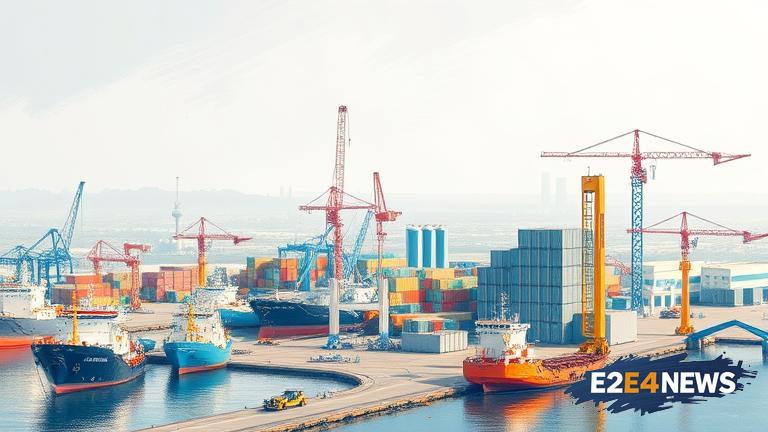The global economic landscape is undergoing a significant transformation, with emerging markets playing a crucial role in shaping the future of international trade. Saudi Arabia, in particular, has been making waves in the global economy, with its ambitious plans to diversify its economy and reduce its dependence on oil exports. The kingdom’s strategic location, situated at the crossroads of Europe, Asia, and Africa, makes it an ideal hub for trade and commerce. With its massive investments in infrastructure development, including the construction of new ports, airports, and logistics facilities, Saudi Arabia is poised to become a major player in global trade. The kingdom’s Vision 2030 plan, which aims to reduce its dependence on oil exports and develop a more diversified economy, has been gaining momentum, with significant progress made in recent years. The plan includes initiatives to develop the tourism, manufacturing, and renewable energy sectors, among others. Saudi Arabia’s economy has been growing steadily, with the kingdom’s GDP expected to reach $1.7 trillion by 2025. The country’s trade relationships with other nations have also been expanding, with Saudi Arabia signing several major trade agreements in recent years. The kingdom’s membership in the G20 and its participation in international trade organizations, such as the World Trade Organization, have also helped to boost its global trade profile. Furthermore, Saudi Arabia’s investment in digital infrastructure, including the development of smart cities and e-government services, has been improving the business environment and making it more attractive to foreign investors. The kingdom’s efforts to improve its business environment have been recognized by international organizations, such as the World Bank, which has ranked Saudi Arabia as one of the top improvers in its Ease of Doing Business report. The country’s tourism sector has also been growing, with the kingdom’s rich cultural heritage and natural beauty attracting visitors from around the world. The Red Sea Project, a massive tourism development project, is expected to create thousands of jobs and generate significant revenue for the kingdom. In addition, Saudi Arabia’s manufacturing sector has been expanding, with the kingdom’s industrial cities, such as the King Abdullah Economic City, attracting foreign investment and creating new job opportunities. The kingdom’s renewable energy sector has also been growing, with Saudi Arabia aiming to generate 50% of its electricity from renewable sources by 2030. The country’s efforts to reduce its carbon footprint and promote sustainable development have been recognized by international organizations, such as the United Nations. Saudi Arabia’s trade relationships with other nations in the region, such as the United Arab Emirates and Egypt, have also been strengthening, with the kingdom playing a key role in regional trade agreements, such as the Gulf Cooperation Council. The kingdom’s participation in international trade exhibitions and conferences, such as the World Economic Forum, has also helped to promote its trade profile and attract foreign investment. Overall, Saudi Arabia’s emergence as a major player in global trade is expected to have a significant impact on the global economy, with the kingdom’s strategic location, massive investments in infrastructure development, and diversification efforts making it an attractive destination for foreign investors and traders. The kingdom’s growth and development are expected to create new opportunities for trade and investment, both within the region and globally. As the global economy continues to evolve, Saudi Arabia is well-positioned to play a key role in shaping the future of international trade. With its strong economy, strategic location, and massive investments in infrastructure development, the kingdom is expected to remain a major player in global trade for years to come. The country’s commitment to sustainable development and reducing its carbon footprint is also expected to have a positive impact on the environment and promote a more sustainable future for generations to come.





